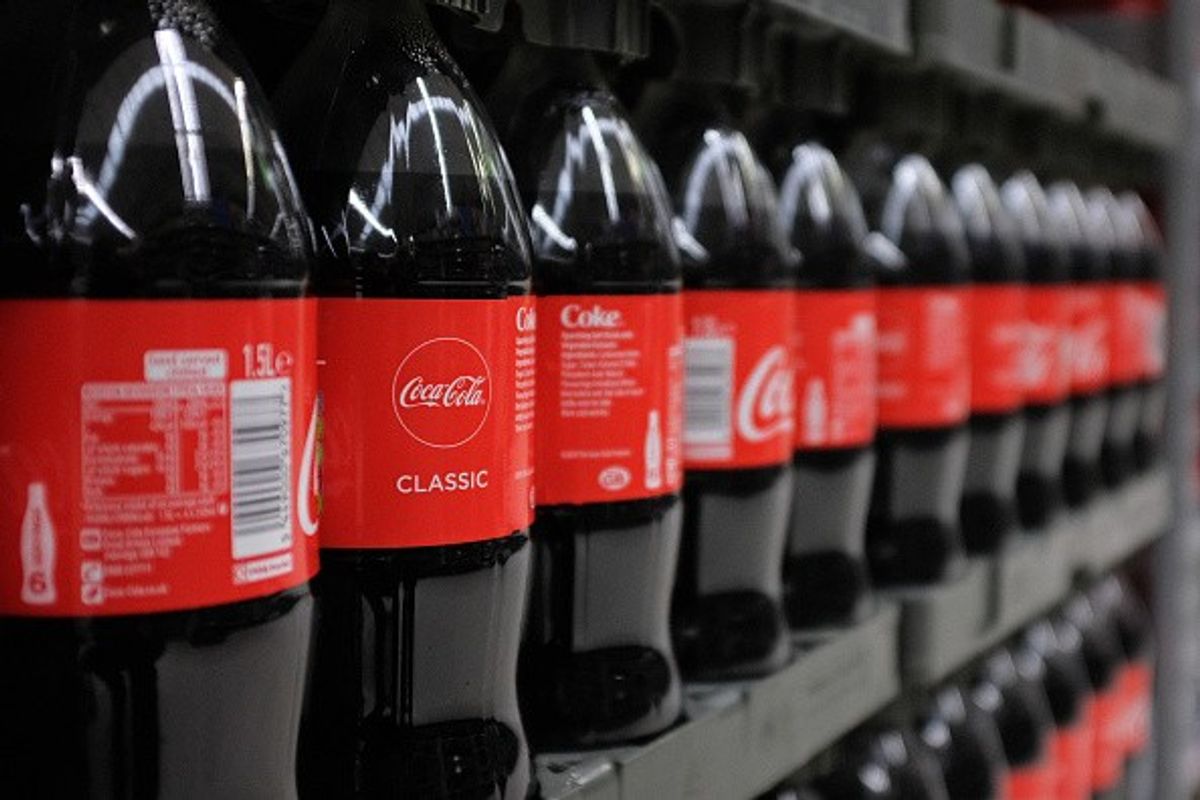Drinks company Coca-Cola Europacific Partners has called for the government to pass legislation for single-use drinks containers before the general election, or risk the UK becoming the “dirty man of Europe”.
Julian Hunt, vice-president of Coca-Cola Europacific Partners, the sole licensed bottler for products of The Coca-Cola Company in Europe, urged ministers to make good on their promise of bringing in a cash-incentive scheme to encourage more people in Britain to recycle drinks containers, such as bottles and cans.
“My plea to policymakers, on behalf of the beverage sector, is we really can’t have the UK being the dirty man of Europe when it comes to this,” he told delegates at a conference for retailers last week.
“It’s really time that the four governments come together and start to sort this out, irrespective of where we are in the electoral process.”
“Our friends and colleagues in the Republic of Ireland were the 43rd country to launch a DRS in February this year,” Hunt said at a conference last week.
“It’s been a pretty darn successful launch built on pragmatism and collaboration. However, we still have a lack of clarity across Great Britain. We’ve still got concerns that we could end up with three different schemes. That is not just bad for business and bad for consumers but bad for the environment.”
Deposit Return Scheme was set to launch in Scotland in 2021, before launching in England, Wales and Northern Ireland after consultations, but it was postponed amid the pandemic. It has been delayed several times since, due to what retailers and producers have described as myriad failures over its design.
It was revealed last month that deposit return scheme (DRS) has been again pushed back, this time until at least 2028 due to challenges involved in forming an administrator and the time needed to install the infrastructure in supermarkets and smaller shops.
According to a report in The Times, manufacturers wanted legislation to be passed before Britain’s incoming packaging recycling scheme came into force, which could end up them paying more fees.
The new extended producer responsibility (EPR) legislation, designed for producers to pay the full net costs of managing and recycling packaging waste arising from products they sell, is due to start in October 2025 after its launch date was pushed back by a year.
“There are discussions around whether cans, for example, would need to be rolled into EPR before any DRC schemes come into force,” a source told The Times. “Drinks manufacturers are worried that if there is not a DRS implemented very soon then they could find themselves having to pay EPR fees too, which in the long run is more expensive.”
Retailers, however, have urged the government to take its time to get the scheme right before its launch.
Andrew Opie, director of food and sustainability at the British Retail Consortium, the industry body, said, “To needlessly rush into a DRS would likely see consumers paying the price of the £1.8 billion-a-year scheme through higher prices, while failing to deliver upon the promise of improved recycling. Government needs to work with retailers and manufacturers to ensure the public gets a world-class recycling system that collects and processes as much recyclable material as possible.”
A spokesman for the Department for Environment, Food and Rural Affairs said, “We are pushing ahead with our programme of reforms to reduce waste and improve our use of resources and remain committed to our goal of eliminating avoidable waste by 2050. It’s essential that we work closely with industry to make sure our reforms will be a success and we will continue to engage with businesses closely as we proceed with introducing the deposit return scheme.”


